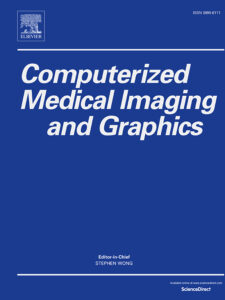Generative AI has shown tremendous potential in transforming biomedical research and healthcare by offering new ways to analyze data, generate synthetic biological data, and predict patient outcomes. However, the successful application of these models also presents various challenges, such as data scarcity, model interpretability, ethical concerns, and the need for domain-specific solutions. The special track will serve as a forum to discuss cutting-edge developments, share practical insights, and address the challenges faced by researchers and practitioners in applying generative AI to biomedical applications.
Topics of interest
Example areas include but are not limited to:
- Generative AI in medical imaging: Applications of AI models in image reconstruction, noise reduction, and segmentation of medical images.
- Synthetic data generation for biomedical research: Techniques for creating high-quality synthetic datasets to overcome data limitations.
- GANs for drug discovery and molecular generation: Leveraging generative models to explore chemical spaces and design novel compounds.
- Diffusion models in biomedicine: Applying diffusion-based generative models to model biological systems and processes.
- Generative models for personalized medicine and patient-specific treatment: Tailoring treatments to individual patients by generating patient-specific data.
- AI-driven diagnostics and prognostics using generative models: Enhancing diagnostic and predictive tools through generative model integration.
Integration of generative - AI with bioinformatics and genomic data: Combining generative models with large-scale biological datasets for new insights.
Model interpretability and transparency in biomedical applications: Addressing the challenge of making generative AI models understandable and explainable in healthcare. - Ethical implications of generative AI in healthcare: Discussing the ethical concerns raised using generative AI, such as data privacy and bias.
Handling imbalanced and scarce datasets with generative techniques: Using generative methods to compensate for data imbalances in biomedical datasets. - Cross-modal generative AI models for combining multimodal biomedical data: Fusing different types of biomedical data (e.g., images, signals, and text) using generative AI.
- Applications of AI-generated data in clinical trials and healthcare decision-making: Employing AI-generated synthetic data to improve clinical trial design and medical decision processes.
- Case studies and real-world implementations of generative AI in biomedicine: Showcasing practical examples of generative AI successfully applied in real-world biomedical problems.
Expected types of contributions
We encourage submissions that demonstrate novel methods, share experimental results, and propose theoretical advances. Both academic and industry contributions are welcome. Submitted papers will undergo peer review, and accepted papers will be presented at the conference.
- Regular papers: The length of the contribution is limited to 6 pages, but it is possible to extend the paper length up to 8 pages by paying for each extra page. Check fees for more information.
- Short papers: The length of the contribution is limited to 4 pages and no less than 3 pages, not being possible to extend the paper length. The duration of the oral presentation of short posters will be less than regular ones.
- Posters: The length of the contribution is limited to 2 pages. Poster papers will be included in the proceedings but won’t include oral presentations during the conference. The authors of a poster also need to prepare a real poster to be shown during the conference. For presentation purposes at the conference, the authors must prepare the poster in portrait format. The accepted dimensions are 60 (width) x 80 (length).
More information available at: https://2025.cbms-conference.org/
Organizers
- Matteo Tortora, University of Genoa, Italy
- Fabio Galasso, Sapienza University of Rome, Italy
- Tufve Nyhol, Umeå University, Sweden
- Tânia Pereira, University of Coimbra, Portugal
- Alessandro Bria, University of Cassino and Southern Lazio, Italy
- Aurora Rofena, University Campus Bio-Medico of Rome, Italy
Program Committee
- Akshay Chaudhari, Stanford University, USA
- Andrea Mastropietro, Sapienza University of Rome, Italy
- Asad Khattak, Zayed University, United ArabEmirates
- Chongsheng Zhang, Henan Universit, China
- David Helbert, Université de Poitiers, France
- David Svoboda, Masaryk University, Czech Republic
- David van Dijk, Yale University, USA
- Fabien Baldacci, Université de Bordeaux, France
- Fabien Scalzo, University of California,s USA
- Federico Siciliano Sapienz, University of Rome, Italy
- Francesca Miccolis, University of Modena and Reggio Emilia, Italy
- Francesco di Feola, Umeå University, Sweden
- Francesco Guarnera, University of Catania, Italy
- Francesco Nasta, University of Luxembourg, Luxembourg
- Francisco LópezTiro, Tecnológico de Monterrey, Mexico
- Giulia di Teodoro, Sapienza University of Rome, Italy
- Gustavo Xavier Andrade Miranda, University of Western Brittany, France
- Ioanna Miliou, Stockholm University, Sweden
- Jan-Oliver Kropp, Forschungszentrum Jülich, Germany
- Jana Lipkova, University of California Irvine, USA
- Jieyun Bai, University of Auckland, New Zealand
- Kaisar Kushibar, University of Barcelon, Spain
- Linda Shapiro, University of Washington, USA
- Marcela Xavier Ribeiro, Federal University of São Carlos, Brazil
- Marco Cantone, University of Cassino and Southern Lazio, Italy
- Michelle Espranita, Liman Technical University of Munich, Germany
- Ram Sarkar, Jadavpur University, India
- Sebastien Valette, Université Lyon, France
- Serestina Viriri, University of KwaZulu-Natal, South Africa
- Steven Hicks, SimulaMet, Norway
- Xiang “Shaun” Li, Massachusetts General Hospital, USA
- Yiqing Shen, Johns Hopkins University, USA
- Sonia Laguna, ETH Zürich, Switzerland
Contact
For more information, please visit the IEEE CBMS 2025 website at https://2025.cbms-conference.org/ or contact the track chairs at matteo [dot] tortora [at] unige [dot] it.
Call for papers
You can download Call for papers here.
Special Issue
GAI4BA special will have a special issue on Compputerized Medical Imaging and Graphics.

Information about the SI is available here.
